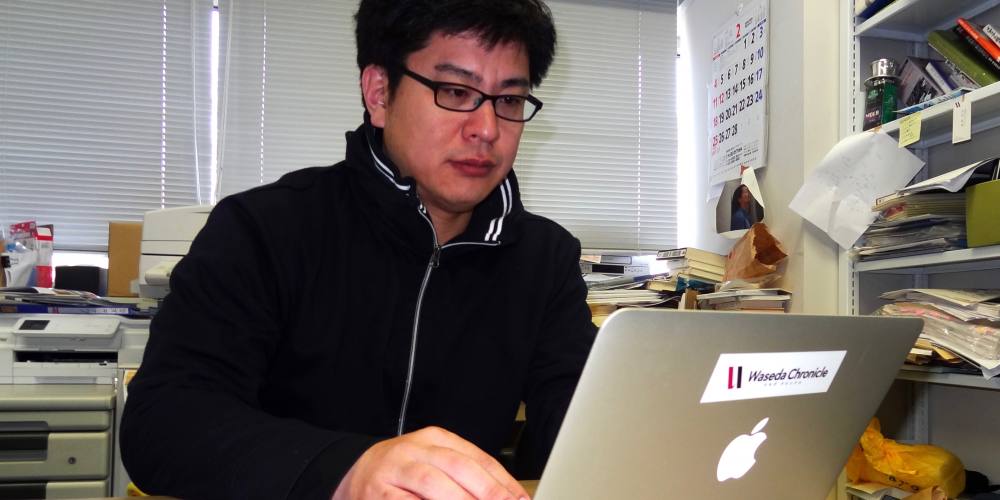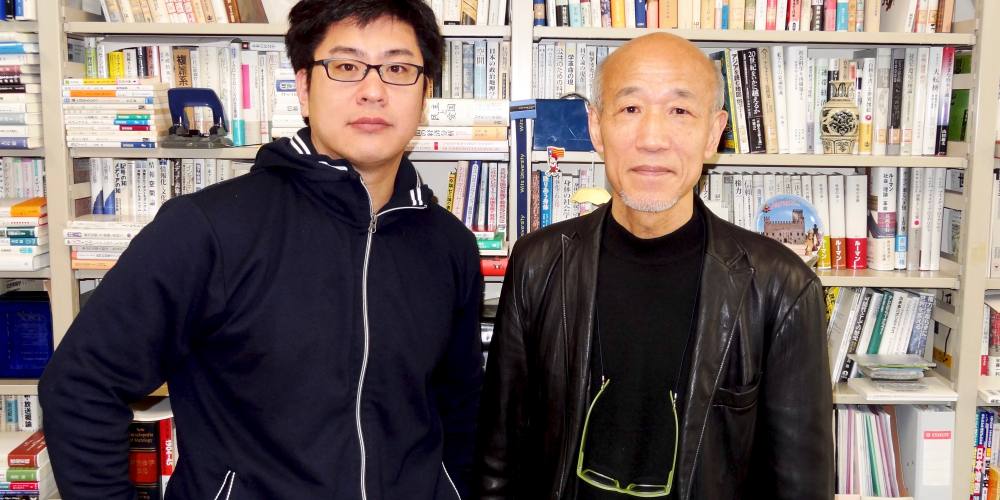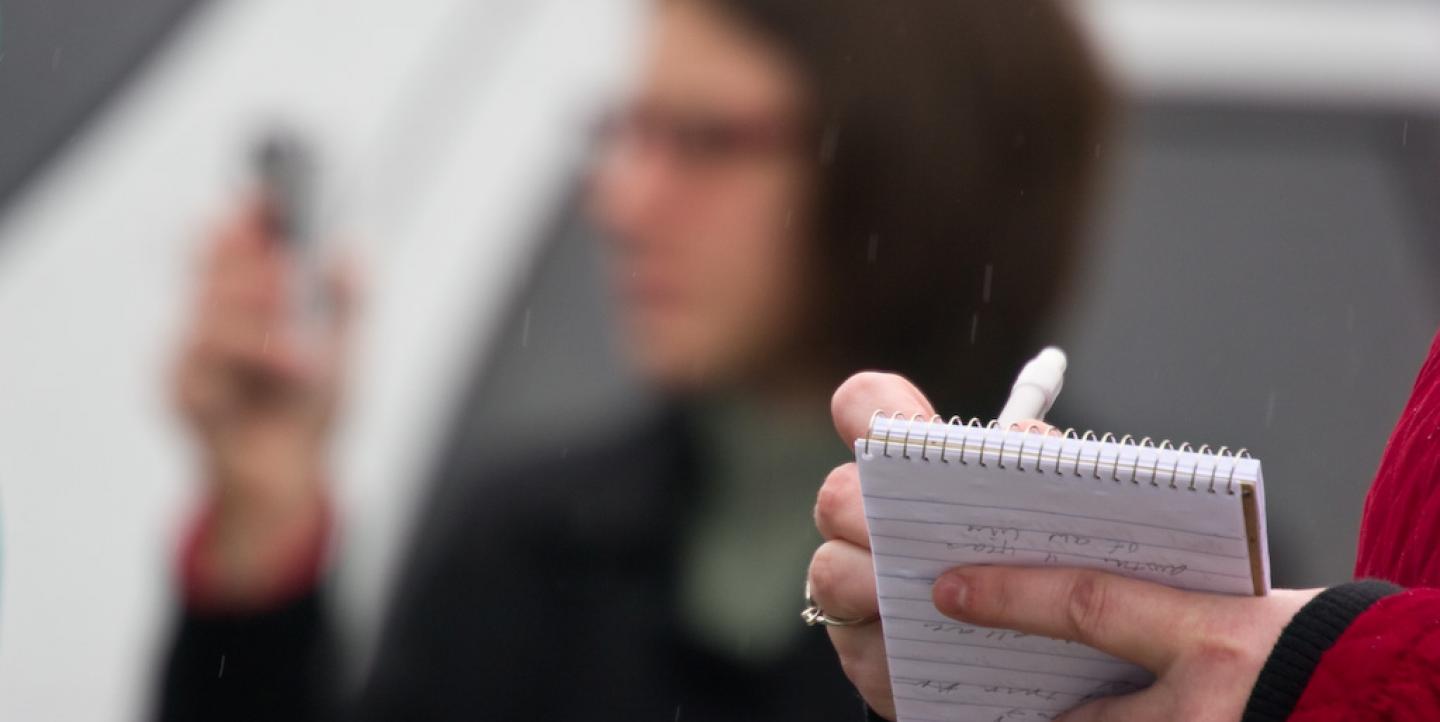For the past few weeks, news media in Japan have been reporting on a growing controversy around the government’s past forced sterilization of some 25,000 people under the 1948 Eugenic Protection Law.
The upstart investigative website Waseda Chronicle was the first outlet to report how the government required Japan’s prefectures to increase sterilizations, which targeted people with mental illness or other conditions.
Founded at the Institute of Journalism in Tokyo’s Waseda University in February 2017, the Chronicle is now an independent nonprofit. Backed by a crowdfunding campaign, it represents one of the best new journalism hopes in a country that is often uncomfortable with investigative reporting.
Watchdogs defanged
The Chronicle began making a name for itself last year with an exposé of how a subsidiary of advertising giant Dentsu Group paid about $5,200 to an arm of major Japanese newswire Kyodo News for an article on blood thinners. The site also reported that Dentsu had been paying Kyodo for pharmaceutical articles since at least 2005.
The Foreign Correspondents’ Club of Japan recognized the Chronicle’s work with a 2017 Freedom of Press Award. When he accepted it, Makoto Watanabe, Waseda Chronicle’s editor-in-chief, bemoaned the fact that mainstream Japanese media ignored the reporting. But he said that Kyodo promised to stop its practice of paid news articles.
The accolade has special meaning in a country that in 2017, ranked 72nd in press freedom — and last in the G7 group of industrialized states — in the 180-country World Press Freedom Index produced by Reporters Without Borders.
Watchdog journalism has a troubled history in Japan. Mainstream journalism centers around “press clubs” at government, police and other institutions where officials spoon-feed information to the press. 
Watanabe was once a reporter with the left-leaning Asahi Shimbun newspaper’s investigative journalism unit. Formed after the March 11, 2011 earthquake, tsunami and meltdown disaster at the Fukushima Dai-ichi nuclear power plant, the unit had won several awards. In 2014, however, the paper retracted a major story about workers who fled the plant in the wake of the catastrophe.
It followed another retraction about another touchy topic — wartime “comfort women”. Amid a storm of public criticism, the paper shrunk the size of its investigative journalism team, and Fukushima and comfort women became proscribed topics. Watanabe quit after the paper shelved a report he wanted to write on the cozy ties between doctors and pharmaceutical companies.
“Reporters in mainstream media are salarymen first, then journalists, and I don’t want to be a salaryman at a media company. I want to be a lifelong journalist,” says Watanabe, referring to Japan’s legions of corporate workers. “I wanted to go back to the foundations of journalism and education. Journalists used to get lots of on-the-job training at mainstream media in Japan, but tight finances have made this increasingly rare.”
Starting a new chapter
Watanabe teamed up with sociologist Tatsuro Hanada, the institute director and a professor in Waseda’s Faculty of Education and Integrated Arts and Sciences.
In 2014, Hanada had spoken at the Foreign Correspondents’ Club to protest the Asahi’s Fukushima retraction, and found that working with Watanabe was an easy decision. Together with another former Asahi journalist, Hideaki Kimura, they launched Waseda Chronicle as an independent investigative voice.
“I would say that Waseda Chronicle is also a response to U.N. special rapporteur David Kaye’s report that noticed the lack of independence of media in Japan,” says Hanada, who is retiring from Waseda this March. “He said to journalists, ‘Stand up and struggle with power.’ That was his message. But no group of journalists reacted to this recommendation except Waseda Chronicle.”
Running the Chronicle
Working out of a tiny room at Waseda stuffed with books, papers, computers and futons for all-nighters, Watanabe has led his scrappy, all-volunteer team of 23 people through the outlet’s first year, releasing the “Journalism for Sale” series, which has since been translated into English.
The Chronicle also joined the Global Investigative Journalism Network, attending its 2017 conference in South Africa, and launching a successful crowdfunding drive that raised $52,000 with donations from more than 300 supporters.
The funds have already been spent on reporting expenses, and now the Chronicle wants to establish three sources of funds for sustainability: donations of at least $9.50 per month from supporters, crowdfunding for each investigative project (the one on forced sterilization has raised some $6,700 so far) and grants from foundations that support journalism.
The Chronicle is now splitting from Waseda, moving into offices at an undisclosed location in Tokyo to bolster its independence.
Watanabe and his colleagues are publishing three to four articles per week, all of it investigative journalism, on the larger themes such as forced sterilizations and related stories such as victims’ accounts.
“These days, anyone can be a journalist by writing a blog on the internet, but only professionals can do investigative journalism as an exclusive activity and change society,” says Watanabe. “We want to develop a good business model so we can continue to do the stories we want for a long time.”
“The Waseda Chronicle journalists have the highest degree of spirit and skill,” says Hanada, who will continue to serve on the Chronicle’s advisory board after he retires. “I have no concerns about that. The challenge is to make it sustainable through adequate funding. We need both moral and financial support from Japanese civil society.”
First image of Makoto Watanabe from Tim Hornyak. Second image of Watanabe and Tatsuro Hanada from Tim Hornyak. Main image CC-licensed by Wikimedia Commons via Roger H. Goun.

